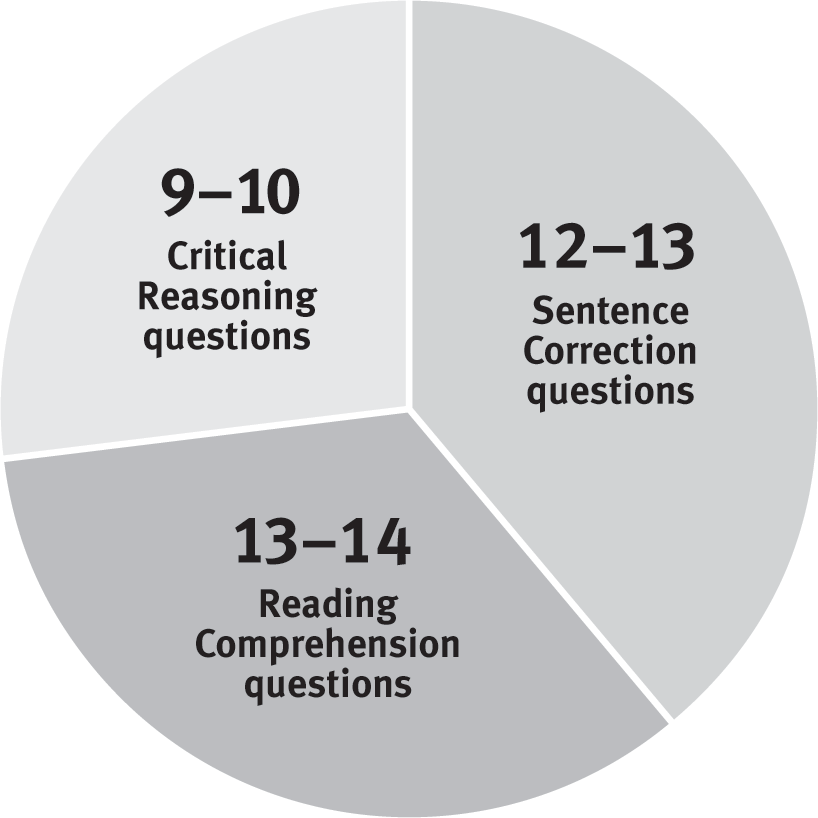
CHAPTER 4
The Quantitative and Verbal sections contribute about equally to your overall 200–800 score. If your performance on the Verbal section is a strength, make sure to leverage that strength by including some Verbal practice in your study plan. If you're concerned about your Verbal score, know that the chapters in this part of the book will give you strategic approaches that work for every Verbal question type.
A little more than half of the multiple-choice questions that count toward your overall score appear in the Verbal section. You have 65 minutes to answer 36 Verbal questions in three formats: Reading Comprehension, Sentence Correction, and Critical Reasoning. These three types of questions are mingled throughout the Verbal section, so you never know what’s coming next. Here’s what you can expect to see:

You may see more of one question type and fewer of another. Don’t worry: the GMAT is a standardized test, so the number of each kind of question won’t vary too far from what you expect and have studied for.
In the next three chapters, you’ll learn strategies for each of these question types. But first, let’s look at some techniques for managing the Verbal section as a whole.
Some questions on the GMAT are experimental. These questions are not factored into your score. They are questions that the test maker is evaluating for possible use on future tests. To get good data, the test maker has to test each question against the whole range of test takers—that is, high and low scorers. Therefore, you could be on your way to an 800 and suddenly come across an easy question, leading you to question how you think you are doing.
Don’t panic; just do your best on the question in front of you and keep going. The difficulty level of the experimental questions you see has little to do with how you’re currently scoring. Remember, there is no way for you to know whether a question is experimental or not, so approach every question as if it were scored.
Furthermore, keep in mind that it’s hard to judge the difficulty level of a question. A question that seems easy to you may simply be playing to your personal strengths and be very difficult for other test takers. So don’t waste time speculating about the difficulty of the questions you’re seeing and what that implies about your performance. Rather, focus your energy on answering the question on the screen as efficiently as possible.